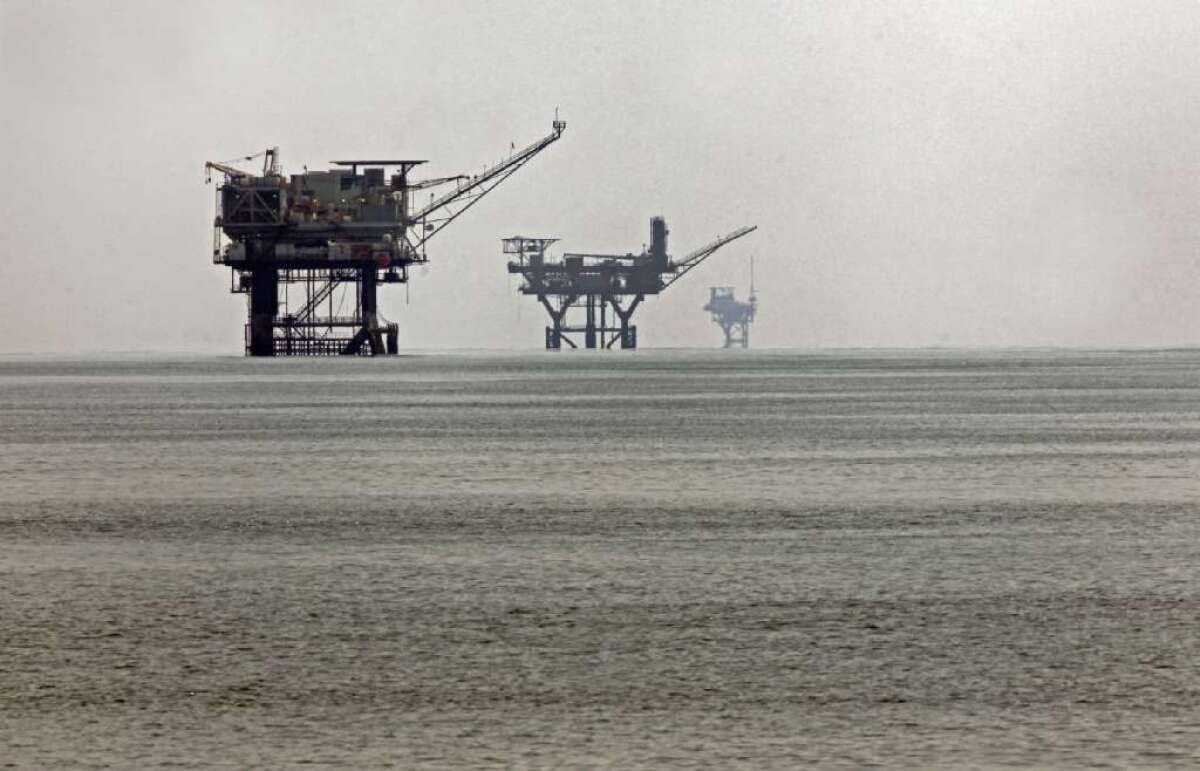Oil plummets in worst week since 2008, pushing exploration outfits to the brink

Oil had its worst week since the financial crisis as panic over the coronavirus pandemic battered global markets.
Oil futures in New York fell 16% this week, marking the biggest weekly drop since December 2008. West Texas Intermediate futures for April delivery fell $2.33, or 5%, on Friday to settle at $44.76 a barrel on the New York Mercantile Exchange. Brent for April settlement, which expired Friday, lost $1.66, or 3.2%, to end the session at $50.52 a barrel on the ICE Futures Europe exchange. The more active May contract fell 4% to $49.67.
The viral outbreak showed no signs of relenting, with the World Health Organization raising global risk to “very high” from “high.” The collapse of financial markets prompted U.S. Federal Reserve Chairman Jerome Powell to assure investors that the central bank is prepared to cut interest rates to mitigate the virus’ threat to economic activity.
“A month ago the concern was only China,” said Pavel Molchanov, energy research analyst at Raymond James & Associates Inc. “This meltdown is a fear of a global pandemic. The risk is we will see the same disruptions we saw in Asia, from travel restrictions to quarantines, materialize all over the world.”
Oil prices have tumbled almost 27% this year on concerns the coronavirus outbreak will dent crude demand. OPEC and its allies have signaled the coalition could reach an agreement to stem the rout before meeting in Vienna next week. Saudi Arabia is reportedly pushing for collective OPEC+ production cuts of an additional 1 million barrels a day, of which it would bear the brunt. However, Riyadh’s proposal may not be enough to balance the oil market, according to a coronavirus-scenario analysis by Bloomberg Intelligence analysts Salih Yilmaz and Rob Barnett.
“We may be too far deep for any OPEC cuts to have a meaningful impact,” said Peter McGinn, market strategist at RJ O’Brien & Associates LLC. “If the virus keeps spreading, that is just going to keep hurting demand and cause another wave of panic selling. A production cut could give it a bounce, but these lows will persist for the foreseeable future without a vaccine.”
The virus outbreak is forcing U.S. oil and gas explorers already burning through borrowed cash to the brink of distress.
The stocks of U.S. explorers are on average worth just a quarter of their peak in mid 2014, when oil started plunging from more than $100 a barrel. The S&P Oil & Gas Exploration and Production Index has plunged 82% since.
This week’s sell-off exacerbated challenges facing distressed energy borrowers, which have been pressured by high debt loads, low commodity prices, disappointing earnings, and investors reluctant to keep financing them.
High-yield energy borrowers have lost nearly 8% this year, compared to a loss of only 0.8% for the broad category of high-risk borrowers, according to Bloomberg Barclays data.
Once at the vanguard of the U.S. shale revolution, Chesapeake Energy Corp. has fallen headlong toward collapse as it and rival drillers flooded the U.S. with excess natural gas, crushing prices and destroying billions of dollars in value.
Chesapeake’s shares have all but evaporated in value, trading below 30 cents. It’s 11.5% bonds maturing in 2025 have plunged 28% this week to 57 cents on the dollar. The yield on the security, a measure of how much investors will demand in gains to take the risk of holding it for a year, has surged to almost 30%, about the same level as government bonds from troubled Lebanon.
Whiting Petroleum Corp. stock is down 75% this year amid reports that the oil producer is holding discussions with advisers to review its capital structure. Whiting and Chesapeake are among the names that are “poorly positioned” if an economic downturn were to push oil to $40 a barrel and natural gas to $1.75 per million British thermal units, analysts at Scotiabank wrote earlier this week in a note to investors.
More to Read
Inside the business of entertainment
The Wide Shot brings you news, analysis and insights on everything from streaming wars to production — and what it all means for the future.
You may occasionally receive promotional content from the Los Angeles Times.










